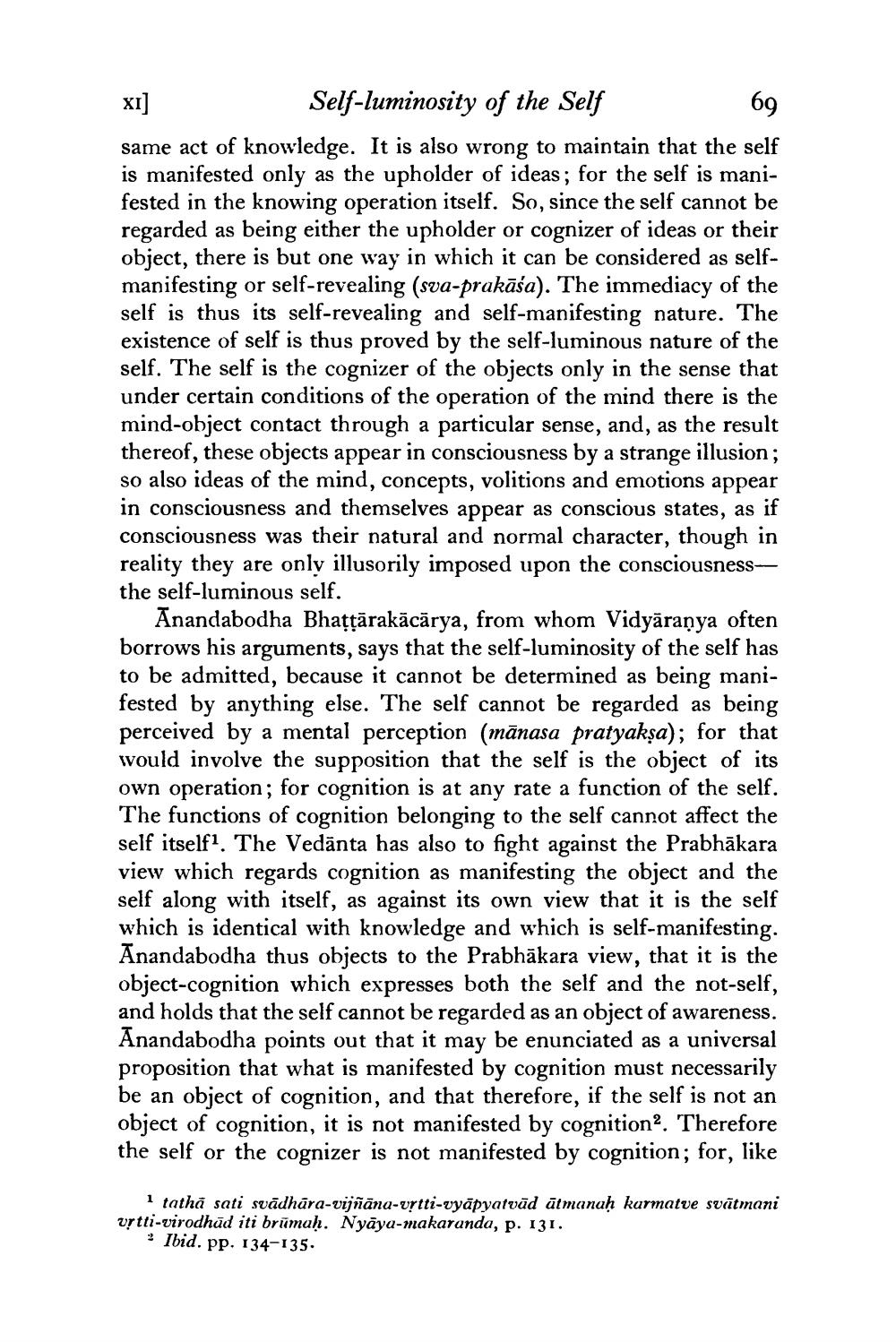________________
XI]
Self-luminosity of the Self
69
same act of knowledge. It is also wrong to maintain that the self is manifested only as the upholder of ideas; for the self is manifested in the knowing operation itself. So, since the self cannot be regarded as being either the upholder or cognizer of ideas or their object, there is but one way in which it can be considered as selfmanifesting or self-revealing (sva-prakāśa). The immediacy of the self is thus its self-revealing and self-manifesting nature. The existence of self is thus proved by the self-luminous nature of the self. The self is the cognizer of the objects only in the sense that under certain conditions of the operation of the mind there is the mind-object contact through a particular sense, and, as the result thereof, these objects appear in consciousness by a strange illusion; so also ideas of the mind, concepts, volitions and emotions appear in consciousness and themselves appear as conscious states, as if consciousness was their natural and normal character, though in reality they are only illusorily imposed upon the consciousnessthe self-luminous self.
Anandabodha Bhaṭṭārakācārya, from whom Vidyaraṇya often borrows his arguments, says that the self-luminosity of the self has to be admitted, because it cannot be determined as being manifested by anything else. The self cannot be regarded as being perceived by a mental perception (mānasa pratyakṣa); for that would involve the supposition that the self is the object of its own operation; for cognition is at any rate a function of the self. The functions of cognition belonging to the self cannot affect the self itself1. The Vedanta has also to fight against the Prabhakara view which regards cognition as manifesting the object and the self along with itself, as against its own view that it is the self which is identical with knowledge and which is self-manifesting. Anandabodha thus objects to the Prabhakara view, that it is the object-cognition which expresses both the self and the not-self, and holds that the self cannot be regarded as an object of awareness. Anandabodha points out that it may be enunciated as a universal proposition that what is manifested by cognition must necessarily be an object of cognition, and that therefore, if the self is not an object of cognition, it is not manifested by cognition2. Therefore the self or the cognizer is not manifested by cognition; for, like
1tathā sati svādhāra-vijñāna-vṛtti-vyāpyatvād ātmanaḥ karmatve svātmani vṛtti-virodhad iti brumah. Nyāya-makaranda, p. 131.
2 Ibid. pp. 134-135.




